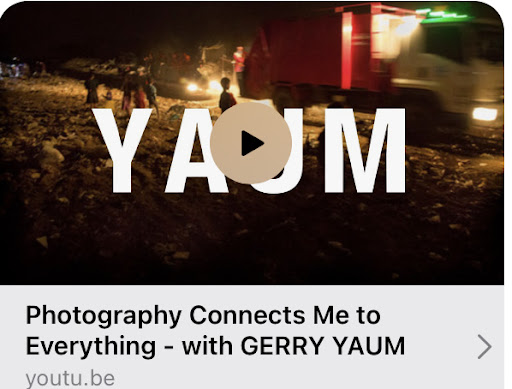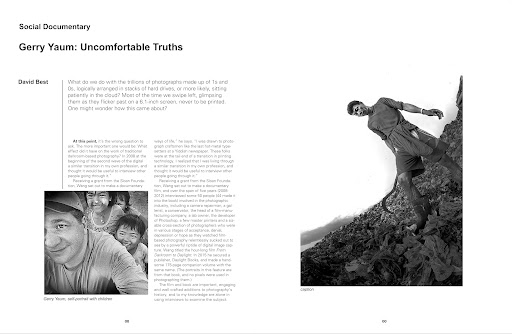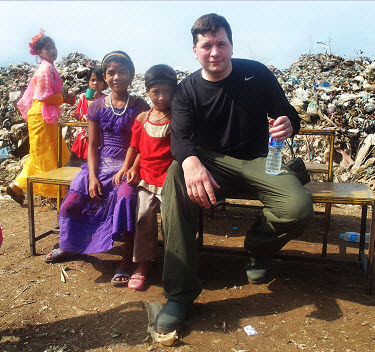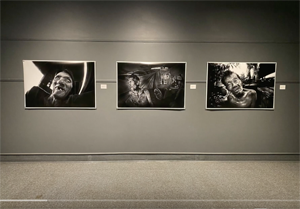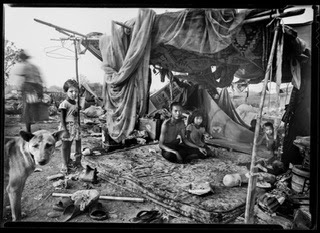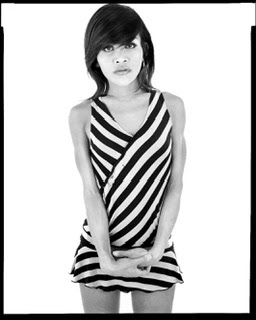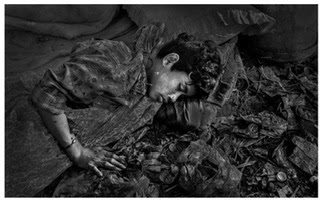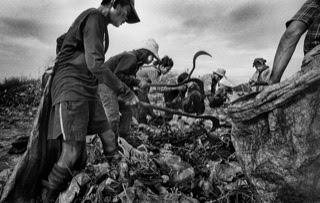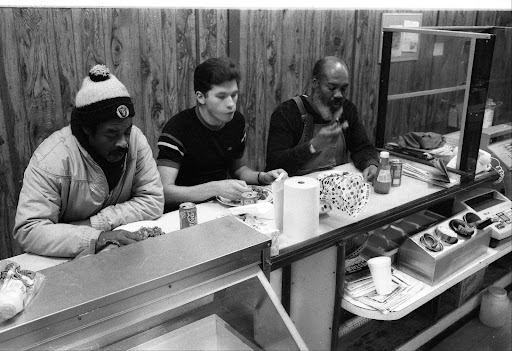The huge advantage of the Ricoh GR-21 is that it is a pro level camera that does not look like it. The camera is an extremely well made Japanese built machine with a world class ultra wide angle 21mm lens (9 elements in 6 groups). The unique and great thing about the GR-21 is that it looks like a simple cheap point and shoot! When using it I am less likely to get shouted at, pushed around, beaten up or robbed
Carrying around a camera in the field that does not look pro like has lots of advantages, the main one is it might not scare off your subjects. I remember when I walked on the streets of Phnom Penh years ago with my Nikon F5, some of my subjects ran on seeing the camera, figuring I was a pro shooter who was going to shut down their business with bad publicity (I was in a red light area).
With the Ricoh I might just be able to make pictures in places and with people that are scared of more fearful looking gear. I am thinking that if I do the "Lost Innocence" brothel portraits this camera might do a better job, it might allow me easier access than the big ass digital Mark II or the Blad cameras. I was also thinking of wandering the streets and shooting away going everywhere to work on my "Bangkok At Night" series I planned years ago. I might also try to concentrate on one or two workers from a some sort of bar in Thai and document that workers life at home and on the streets.
The camera also has a built in flash, I have always liked the harsh look of direct light. I would probably print this work quite contrasty and grainy, playing to films strengths as Larry suggested I do. So direct flash or pushed Tri-x, most likely at 800ASA, maybe even 1600 or 3200.
Another advantage of this camera is it is very small and light. I want to try and carry it everywhere I go. Imagine having a camera with you and using it everyday, every hour of your life.
Here is a YouTube link to a book by Daido Moriyama, he used a GR-21 to make it, you can see what this camera can do in the right hands. I would like to try stuff in a similar style but with a more documentary serious side to it. Photograph important subjects but in a more abstract less formal manner. Through the abstraction I hope to capture more dynamic feelings and emotion in the work.
Daido Moriyama, "Farewell Photography"
Carrying around a camera in the field that does not look pro like has lots of advantages, the main one is it might not scare off your subjects. I remember when I walked on the streets of Phnom Penh years ago with my Nikon F5, some of my subjects ran on seeing the camera, figuring I was a pro shooter who was going to shut down their business with bad publicity (I was in a red light area).
With the Ricoh I might just be able to make pictures in places and with people that are scared of more fearful looking gear. I am thinking that if I do the "Lost Innocence" brothel portraits this camera might do a better job, it might allow me easier access than the big ass digital Mark II or the Blad cameras. I was also thinking of wandering the streets and shooting away going everywhere to work on my "Bangkok At Night" series I planned years ago. I might also try to concentrate on one or two workers from a some sort of bar in Thai and document that workers life at home and on the streets.
The camera also has a built in flash, I have always liked the harsh look of direct light. I would probably print this work quite contrasty and grainy, playing to films strengths as Larry suggested I do. So direct flash or pushed Tri-x, most likely at 800ASA, maybe even 1600 or 3200.
Another advantage of this camera is it is very small and light. I want to try and carry it everywhere I go. Imagine having a camera with you and using it everyday, every hour of your life.
Here is a YouTube link to a book by Daido Moriyama, he used a GR-21 to make it, you can see what this camera can do in the right hands. I would like to try stuff in a similar style but with a more documentary serious side to it. Photograph important subjects but in a more abstract less formal manner. Through the abstraction I hope to capture more dynamic feelings and emotion in the work.
Daido Moriyama, "Farewell Photography"
 |
| Photograph by Daido Moriama |
 |
| Photograph by Daido Moriama |



